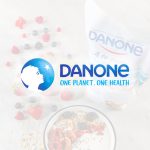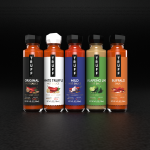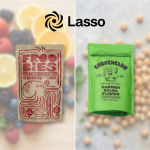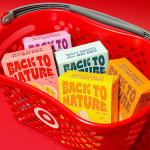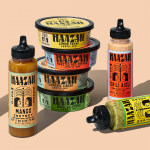High Hopes: THC Edibles Turn to Hemp

Seeing greener pastures in hemp, cannabis edible brands are stepping out of dispensary doors and jumping into the high-growth, retail opportunity opened up by low-dose THC beverages.
As well chronicled on BevNET, low-dose drinks have taken an outsized share of the spotlight in cannabis CPG as of late, particularly as suppliers have turned to legal hemp-derived THC in both its Delta-8 and Delta-9 configurations. But despite recent beverage category gains, edibles remain the most popular format for THC consumption with 67% of users buying cannabis options like gummies or chocolates, according to survey data from Numerator. Meanwhile, low-dose beverages are only consumed by 14% of cannabis users.
The attraction of shifting to hemp-derived THC is clear: the barriers to entry are easier, and innovation in extraction technology and product design are opening up new consumer markets. Yet navigating new terrain where regulatory oversight is still being formed comes with its own challenges to safety and consumer education.
Even though edibles are still outselling drinks by a wide margin, what is happening in cannabis consumables is a “transformational change,” said Richard Baca, founder of cannabis PR agency Grasslands.
“Changing attitudes at-scale is really challenging and nearly impossible,” he said. “We, as the regulated market, really need to send a thank you letter to the hemp D9 brands who are out there doing this work.”
Looking In On Edibles Market Share
In total, dollar sales of cannabis edibles were nearly $4 billion in 2023 with hemp THC edibles accounting for over $1 billion, according to data compiled by the Brightfield Group. Looked at through a different lens, cannabis edibles make up only 12.3% of sales in the regulated THC category whereas hemp D9 edibles make up 88.5% of edible sales in the hemp category.
In 2023, hemp THC edible sales were estimated to be worth one quarter of the regulated cannabis market, said Brightfield Group insights manager Matthew Zehner. “Without regulatory intervention, I’d definitely expect hemp THC sales — especially D9 edible sales because they can easily circumvent the 0.3% THC limit — to see strong growth in the coming years, competing on price and convenience.”
Edibles are now in “Hemp 3.0” explained Baca, a former Denver Post journalist who covered the cannabis industry. According to Baca,“Hemp 1.0” was after the 2018 Farm Bill paved the way for CBD to be used as a wellness ingredient, while “Hemp 2.0” saw the rise of hemp D8 THC products in gas stations, convenience stores and ecommerce sites, a process he described as “what happens to an unregulated, federally legal cannabis market with a lot of bad actors in the mix.”.
In the Hemp 3.0 era, beverage and edible producers are increasingly adopting hemp-derived D9 THC that is normalizing adult-use at a scale that has not really been seen since Colorado passed recreational marijuana legislation in 2012, Baca said.
The key now is to “level the playing field” between what edibles have established in adult-use dispensaries and the quickly evolving marketplace for hemp-derived THC, while still maintaining public safety in production and point-of-sale, Baca said.
Thanks to a new generation of brands and products, low-dose THC products (between 2mg and 10mg THC per serving) have enjoyed new life as alcohol alternatives or as health treatments for anxiety, pain relief, sleep and relaxation. Edibles and drinks positioned as “holistic wellness” represent about 40% share of the shelf followed by relaxation consumables making up 24%, according to consumer data from Brightfield Group.
Survey data points to younger, female cannabis users driving the gummy category. In 2023, millennials made up 52% of the category’s purchasers with 57% of purchasers being women, 6% more than the wider cannabis-using population, though that gap appears to be narrowing.
Label packaging showing accurate dosage has also been important to how THC is consumed. Though still available in dispensaries in larger formats like 100 mg chocolate bars, gummies offer an easier application for lower dose consumption. Nanoemulsion and extraction technology has allowed consumable brands to become faster-acting in how the body processes THC and can be manufactured into new formats like powders and savory snacks.
Too Big To Ignore
Under the gray area created by the 2018 Farm Bill, hemp THC products can be sold direct-to-consumer online in most states as long as the products contain no more than 0.3% THC on a dry weight basis. This has opened up the opportunity to sell hemp D8 and D9 products in places where marijuana is still considered an illegal drug.
There is a synergy unsurprisingly between the rising interest in hemp-derived THC beverages and the engrained edibles category. Though a strong advocate of D9 beverages and a board member of the Hemp Beverage Alliance, seltzer maker Cycling Frog also makes a number of D9 gummies, mints and a higher-dose (50mg) Brownie Bites product.
Houston-based Bayou City Hemp is also more known for its drinks but has aligned edibles with its beverage offerings. Initially positioned in 2019 as a vertically integrated cannabis extraction and processing co-manufacturer, Bayou City makes everything from distillates to finished goods like topicals, vapes, beverages and edibles. In May 2023, the company acquired 8th Wonder Brewery, Distillery and Cannabis and went deeper into the beverage category riding the momentum of multiple brands under its portfolio.
The company also makes both D8 and D9 gummies and has tested the opportunity for edibles on-premise with a dinner series called “High Society” that brings cannabis-centric meals to fine-dining restaurants.

Edible brands that have been positioned squarely in regulated states like Colorado, California or Oregon are also seeing the opportunity in hemp-derived THC.Launched in 2010, Kiva Confections manufactures edibles for the dispensary channel in roughly 12 states. After Congress renewed the 2018 Farm Bill for another year, the company launched a hemp-derived D9 THC version of its best-selling gummy brand Camino in markets where it lacked a dispensary presence. The gummies can be sold direct-to-consumer in about 26 new states online.
“It’s incredible the reach that we’re able to get now through the hemp channel,” co-founder and CEO Kristi Palmer said. “It’s important as a cannabis company to pay attention to what the next opportunity is because regulated THC is a slog.”
“The thing that we’ve learned over the years is there are so many shiny objects out there to chase after and it’s really to your benefit to do your research and make sure the opportunity is real before you invest and chase after the next trend or craze,” she added.
Similar to Kiva, Wyld has made cannabis edibles within the regulated, adult-use market for years along with a variety of CBD gummies and drinks. It is now readying a hemp D9 gummy but is being mindful not to cannibalize its own dispensary business.
When Christopher Joseph launched Wyld with his business partner Aaron Morris in 2016, the cannabis edibles category was new terrain for the two founders, who previously co-created liquor brand house Cascade Spirits. The key tenets to their approach to edibles was “consistency, reliability and trust.”
Entering the relatively unregulated hemp D9 category has required the brand to think deeply on how it can maintain those standards. It can be difficult for companies who work within the strict confines of recreational and medicinal marijuana states.
“Just like liquor stores, dispensaries have that structure to limit accessibility to the substance,” Joseph said. “Our goal is to provide our consumers what they’re requesting and to give them something reliable. But at the same time, above everything else, we want to make sure consumers are being safe.”
Infusion Innovation
Outside of the standard gummies and baked goods, a new wave of product innovations have presented retailers with a more dynamic range of options from which to build their sets in both regulated and unregulated channels.
Some brands have taken to the indulgent treats category like gummy and chocolate maker Plant Jam which launched its THC-laced ice cream and cookie dough brand Clouded Creamery in 2021 positioned in the Massachusetts recreational adult-use market. Taking a slightly different route to market, Illinois-based Jane & Mary’s made hemp D9-infused ice cream and sorbet and have recently expanded into gummies to reach a broader consumer base.

An innovator in the recreational cannabis industry, California-based TSUMo Snacks tried to think outside sweet offerings. Launched in 2020, the brand co-founded by Caroline Yeh and managed by CPG venture studio Redbud Brands rose to prominence offering savory snacks like chips and crackers that relied on branded partnerships with celebrities like Snoop Dogg and chef Roy Choi.
After laying off its staff (including Yeh) last summer and going into hibernation, the company reported it was aiming to relaunch the brand with hemp D9 infused products in 2024 but there hasn’t been an update this year.
Others have tried the savory route as well. Tempo Crackers (recently acquired by Punch Edibles & Extracts) offers a line of both high- and low-dose THC crackers catering to the regulated market. Coming in a variety of flavors, Tempo’s social feeds show how the crackers can be added to recipes to add THC to a cooked dish.
A number of powdered drink brands have taken a similar approach. Newcomer MixMix just launched into the market with four-SKUs (Pink Sea Salt, Spicy Ginger, Tart Citrus and Warm Vanilla) targeted toward use-occasions like cooking and seasoning food and drink.
Positioned as a hydration stick mix, Brelixi was formulated to have a heat tolerance of up to 400 degrees so it can be used in cooking and baking. Developed by food scientist Breanna Neff and launched in May 2023, Brelixi is formulated with nano, water-soluble THC and fortified with adaptogens and nootropic ingredients like 5-HTP, l-theanine and electrolytes for hydration.
“Whenever I tell people they could put it in their soup they really freak out,” Neff said. “It’s really intended to be a part of your daily routines and uplift or elevate you whenever you’d like it to.”
Brelixi distributes through online channels and direct-to-consumer but is marketing itself as a wellness product and finding traction in apothecaries, spas and yoga studios.

What Now?
The disjointed nature of developing and distributing THC products has led to a minefield of loopholes to avoid. From the point of view of Justin Singer, CEO and co-founder of dissolvable THC powder brand Ripple, the problem with hemp’s entrance into THC products is that it has just further complicated an already challenging industry. Policymakers, who are often not well-informed about the differences in cannabinoids and production processes have now tried to delineate between marijuana- and hemp-derived THC despite the fact that they are the same ingredient from essentially the same plant.
“A legal loophole exists because lawmakers didn’t pay close enough attention to what they were doing,” he said. “It’s like trying to imagine banning pink roses, but legalizing red roses. How do you determine what’s pink? What’s red? It doesn’t work.”
This uncertainty and opportunity is playing out with some brands taking shortcuts in turning CBD from hemp into THC. If done improperly, the process can leave harmful chemical byproducts in the D8 or D9.
Many hemp D9 brands spoken to for this story are pushing for more regulation to tamp down on these producers and asking for oversight on quality, testing and dosage. Until that happens, there will continue to be some THC edibles produced improperly that lead to an uptick in calls to poison control or horror stories where children are being admitted to hospitals due to unknowingly consuming intoxicating products intended to look like familiar snacks or candies.
Along with safer finished products, proper oversight will also level the playing field where suppliers who use the best practices and create the best products will flourish, Singer said.
“Consumers don’t create markets, regulations do,” Singer said. “Twenty-two guys beating each other up on a field doesn’t spontaneously evolve into the game of football. You need rules. You need referees. You need somebody to enforce and say when everybody is stepping out.”
Tune into the Community Call Podcast next week for a featured discussion on the cannabis edible category with Kiva Confections co-founder and CEO Kristi Palmer. Subscribe to Community Call on Apple Podcasts or Spotify.

